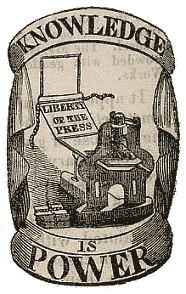



Government’s view of the economy could be summed up in a few short phrases: If it moves, tax it. If it keeps moving, regulate it. And if it stops moving, subsidize it.” —Ronald Reagan
As countries develop their industry, rapid urbanization and higher living standards drive up energy use, most often of oil. Thriving economies such as China and India are quickly becoming large oil consumers. China has seen oil consumption grow by 8% yearly since 2002, doubling from 1996-2006.
It was about this time that people like "experts" Kenneth Deffeyert and Matthew Simmons began predicting that the world was running out of crude oil reserves, and the cry for the ethanol substitute reverberated throughout the USA. Congress stepped up their demands that American car makers had to make lighter more fuel efficient cars, even though the majority of Americans rejected them for SUVs and trucks.
The truth is the world price of crude oil is driven by supply and demand. In 1998( just ten years ago) a barrel of West Texas Intermediate (WTI) Nymex crude sold for as little as US $12 - a low price that reflected a significant glut of crude available on the world market. The world price for crude oil has increased dramatically since 1998. WTI Nymex crude averaged US $56.69 in 2005 and hit a high of over US $90.25 in October 2006 due to world concerns about Iran’s nuclear program. The interaction between supply and demand of crude oil constantly affects the price.Fast forward to 11/26/08 and the price was $46.25! The world price for crude oil can be influenced by extreme weather and natural disasters as well as by political, civil and military unrest, particularly when these activities take place in a significant oil-producing region. Not by greedy Oil Companies as The Leftists in Congress would have you believe!
For example, 2005 saw record crude prices driven by increased demand during an unseasonably cold winter in North America, along with growing global demand in China and India. The supply of crude oil was further tightened when hurricanes along the Gulf of Mexico shut down crude production and distribution infrastructure, and affected refinery operations.
Fast forward to 2008 and we find that OPEC ministers have decided the supply of crude oil is too much for the demand, so they are going to cut back on the extraction and production of crude to drive the price back up! Thus, we have this report from Saudi Arabia:
"The Organization of Petroleum Exporting Countries has scrambled since September to stem the fall in oil prices, which is putting pressure on OPEC budgets from Ecuador to Kuwait. Ineffective in blunting the price spike earlier this year, the organization is proving similarly hapless in putting a floor under collapsing prices".
Bloomberg News/Landov reports that:
OPEC's secretary-general, Abdalla Salem El-Badri, said the crude-oil market is oversupplied, as he arrived Thursday in Cairo for Saturday's meeting.
The group's 12 ministers will meet Saturday in Cairo to decide whether to move ahead on another cut of a million barrels or more after agreeing to a total cut of two million barrels a day at two meetings over the past two months.
After hitting a record of nearly $150 a barrel in July, crude prices have since fallen to nearly a third of that in just four months, the steepest price collapse since formal futures trading began in 1981.
Thursday afternoon, the front-month January Brent contract on London's ICE futures exchange was down 36 cents at $53.56 a barrel.
The cartel's de facto leader and the world's largest exporter, Saudi Arabia, finds itself in a bind. Most OPEC members will face real economic problems if crude prices see a sustained drop below $50 a barrel.I am sure the American consumer will not shed a tear for the Oil rich Arabs!
OPEC's ability to affect the market either way has been minimal, though, as demand continues to fall across the industrialized world and investment flows dry up.
Some analysts now predict that global demand could turn negative both this year and next, adding to a growing spare supply cushion that the world hasn't seen for years.
OPEC countries appear so far to have abided fairly well by pledges made since September to cut supply.
OPEC provides around 40% of the 86 million or so barrels of oil the world consumes daily. But that cohesion could begin to fray as exports and prices both fall.
With financial and social pressures rising, some OPEC nations are nearing an inflection point economically that could result in members such as Venezuela, Ecuador and Nigeria flatly ignoring additional production cuts.
A Nigerian oil official said the country doesn't want any more output reductions because Nigeria already is pumping below its OPEC allocation due to militant attacks on oil infrastructure that have shut around 600,000 barrels a day of production in past months. Nigeria is pumping around 1.95 million barrels a day, below its quota of 2.05 million barrels a day.
"We would have to go even farther below our quota if OPEC cuts more and that would hurt our government budget," the official said.
And less than six months ago the "tics"(blood sucking politicians and Leftists) were telling US that there was a finite limit to the crude oil supply! They cannot have it both ways! But then again, maybe they can with President Obama coming in with his bag full of promises of social welfare. A probable source for the money to fund some of them, and at the same time satisfy his eco freak supporters. A 50 cent increase in the gas tax "to offset the bad economy" might be in the winds of CHANGE!








No comments:
Post a Comment